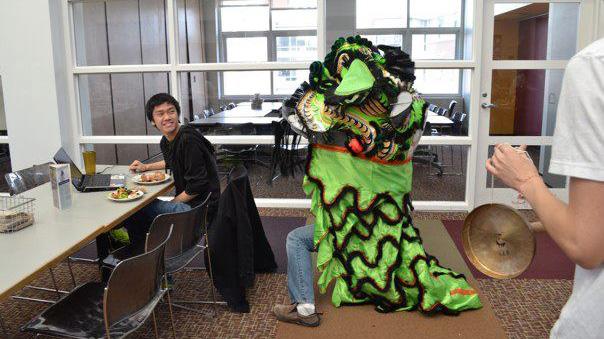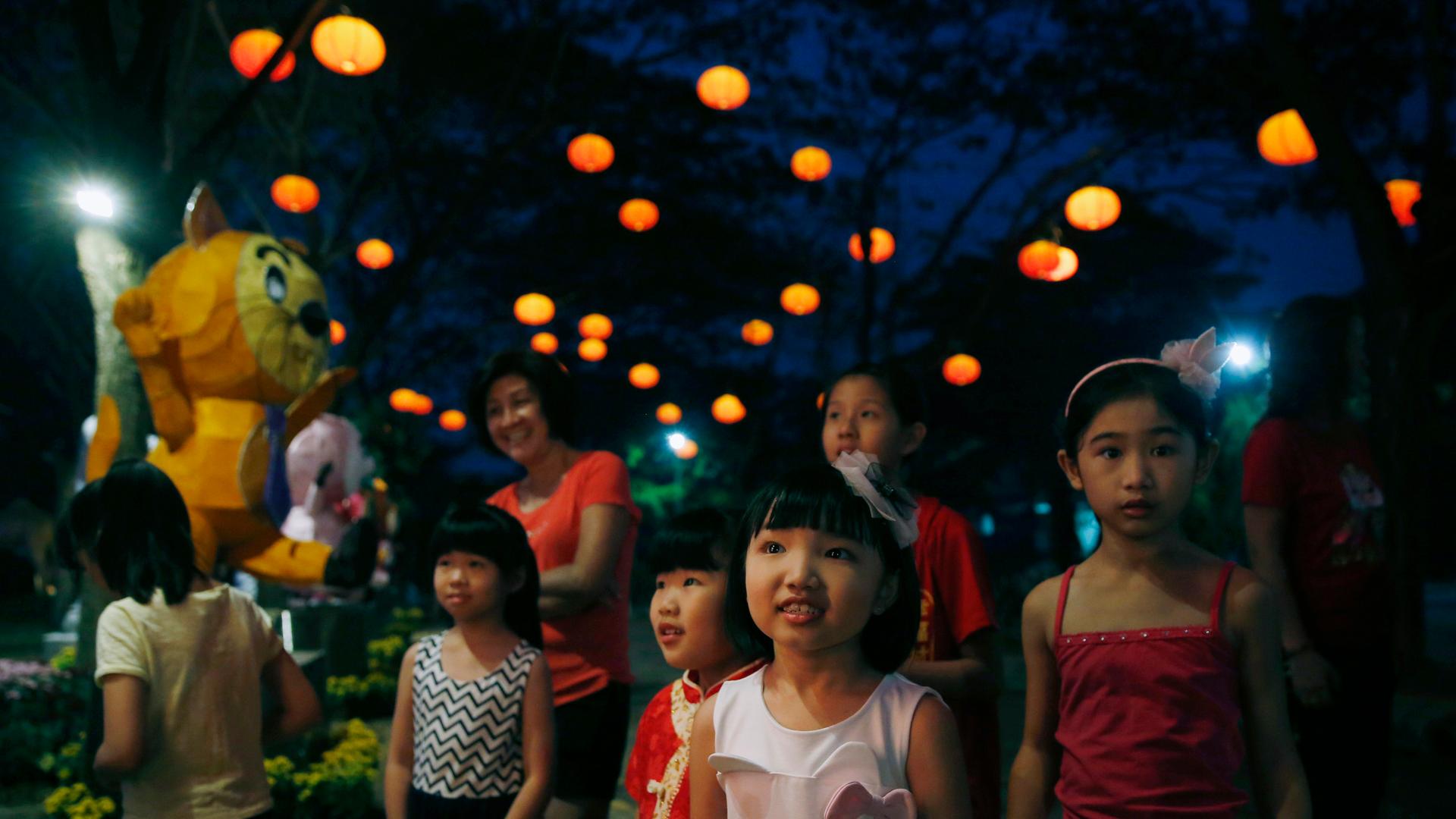Chinese New Year should be a big deal for me. It’s not, and I feel guilty
Children look at a light display for Chinese New Year outside Kuala Lumpur.
It’s strange for me to think that my very first Lunar New Year memory starts not with my own family or even with people of my own race and ethnicity. It’s in my elementary school classroom in a majority white New Jersey town.
The picture looks something like this: Chris, my classmate, and his mother are standing beside a table laden with candied lotus slices and pineapple cakes. Their family owns a Chinese restaurant in town. Chris’ mom had somehow persuaded the school to let us stage a New Year’s celebration. My mother is probably somewhere on the sidelines, and I am in a sea of uncomprehending faces that are surveying the spread.

My parents immigrated to the United States from Taiwan, a Mandarin-speaking Pacific island that China has an epic grudge against. If there’s anything that those two countries can agree on (along with Mongolia, Vietnam, Korea, and Tibet), it’s that the Lunar New Year is awesome and needs to be respected.
That’s why this time of year is considered the moment of the world’s largest annual migration — Asians hitch, fly, drive, and ride their way home no matter what it takes. Lunar New Year celebrations are boisterous, drunken, and loving. They’re dominated by an unending stream of food and the crackle of fireworks. Dollar bills go flying everywhere as kids slap each other in the face with enormous wads of gifted cash. (My brother’s girlfriend actually did this last bit.)
Or that’s how I imagine it to be. My parents never made much fanfare over the holiday when I was growing up. My siblings and I got a red envelope stuffed with cash and ate maybe one or two traditional New Year’s foods. I realized this is the most significant cultural tradition of my heritage, but that was knowledge told to me — it’s not an understanding I’d gained through the experience of celebration.
When I was a kid I had all sorts of ethnic complexes. I felt inferior or ugly or rejected or marginalized because of my race and culture. When I got older and learned to become proud of my heritage, I tried to exhume the tradition of “Asian Peoples’ New Year” and discover parts of myself I’d missed as a youngster.
But it didn’t always come so naturally. There were years, after I had gone to college or graduated, when I vainly tried to gather friends for a celebration. People were too busy or preoccupied. Sometimes, I got a statement like: “To be honest, I forgot it was the New Year.”
I get frustrated with the level of apathy from some of my fellow Asian Americans, until I remember there were years when I would turn to my computer in the morning and be shocked to find a “Happy New Year, Family!” subject line in my inbox. It’s the Lunar New Year already? I’d ask myself. #*&$.
Questions that would run through my head included: Should I do something? Should I wear red? Will I do anything? Sometimes the answer was just no. Nothing happens — I spend the night on my computer, probably working, maybe Netflixing, etc. I usually don’t mind being alone, but then I feel a hard sense of isolation as anyone might when they are meant to be among kin and are not.
I don’t want to give the impression that Asian Americans don’t celebrate the holiday. Many of us most certainly do, and in great style. Some families take the holiday very seriously, and I have peers who also try to lasso in their friends for dinner and firecrackers. It depends on the kind of household you grew up in. If you live in an ethnic enclave like Chinatown or in Flushing, Queens, you’ll even get a parade. But in my singular experience, it gets more difficult with each passing year.
There is a perception about Asianness that we are perpetual foreigners here, and our holidays are spectacles. Perhaps this is the reason why it continues to be so difficult for some schools in New York City to provide a day off, despite recording absence rates of near 80 percent in the past.
Perhaps this is the reason why, when I try to celebrate the Lunar New Year in my own way, it’s a struggle for me to hold up the banner and for others to flock to it. In some sense, I think, maybe this isn’t my banner. Maybe it belongs to those who came before me.
At the same time, I feel compelled to celebrate because I want to celebrate where I come from. But if a holiday when I should feel the greatest communion with my culture and community is a day when I feel the most alone out of the year, then what does it mean to be us?
My father told me recently that he always tried to find a way to celebrate the holiday here like they do in Taiwan. He wanted us to experience our culture in a way that would be meaningful. But he said that was impossible here. The whole system of work, school and vacation days, along with the logistics of travel and family, made it too difficult. How the Lunar New Year ought to be celebrated, he said, can’t be done in this country right now. Eventually, he settled for a subdued, shadowed form of the holiday.
I want to preserve, to stave off the generational attrition of culture. I want to celebrate loudly, bombastically and unapologetically. But here we are, cogs in a machine. We are asked to fit into a system, and silently we do.
This story was adapted from the PRI radio show The Takeaway.
